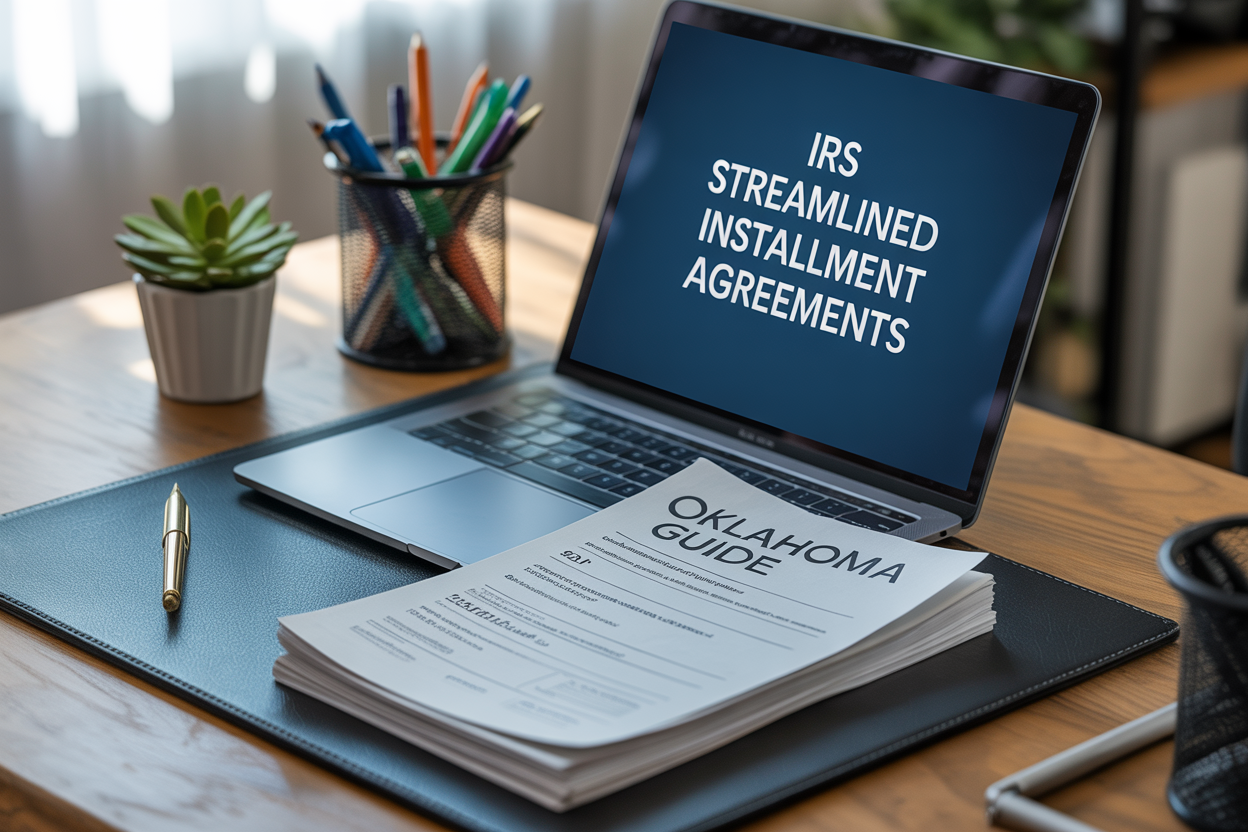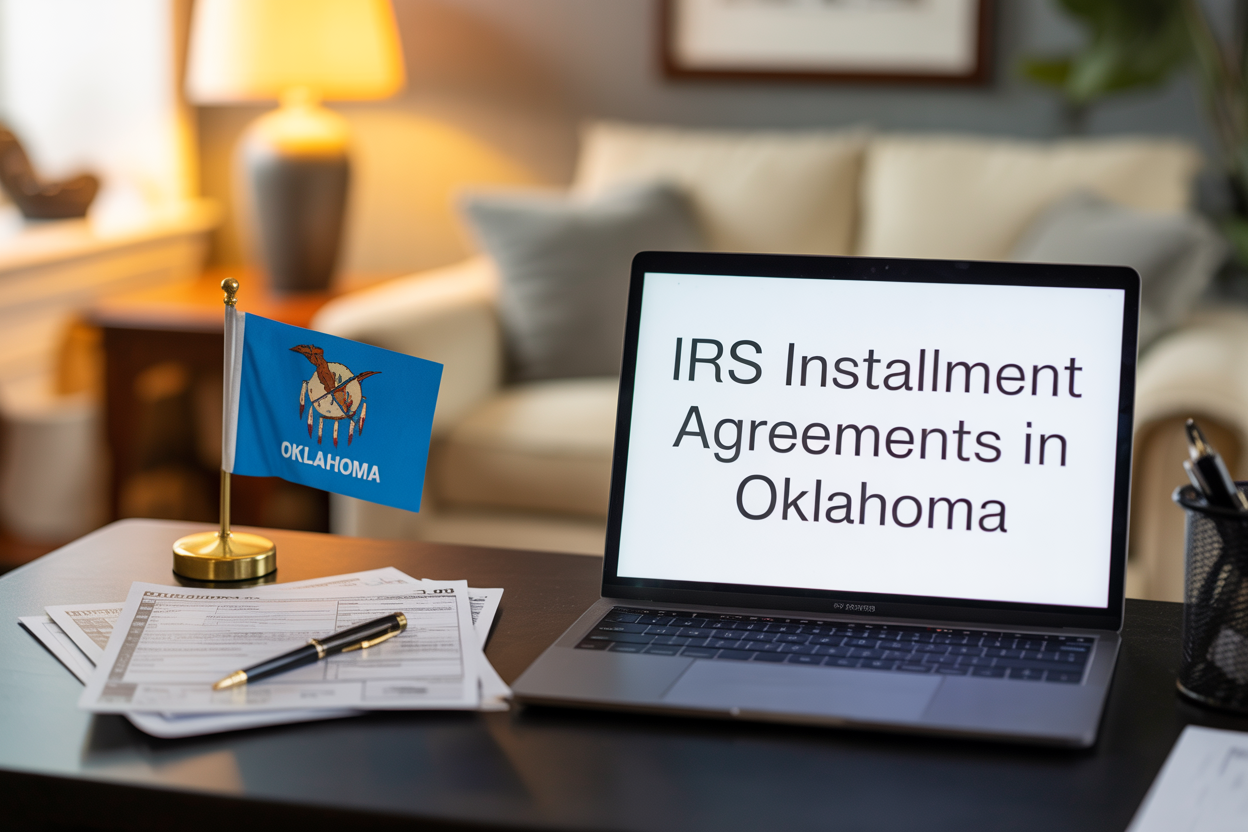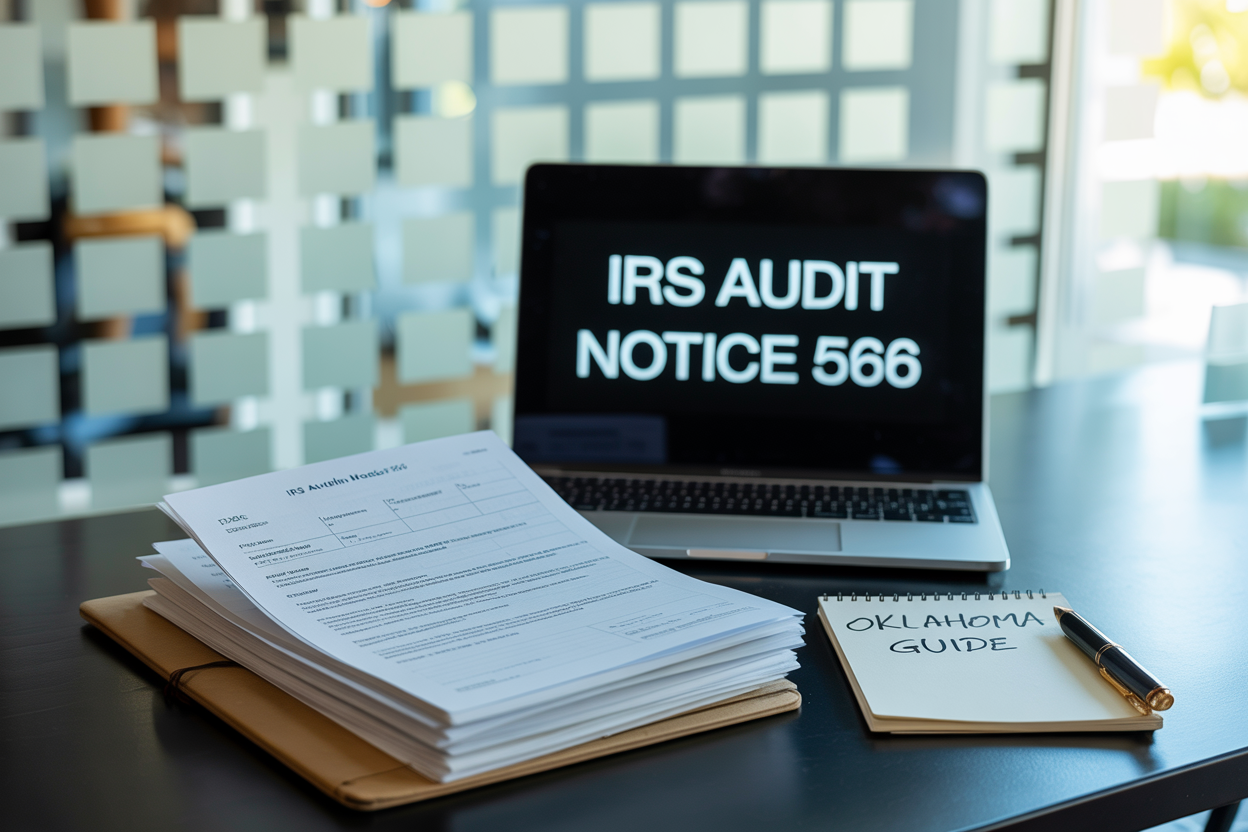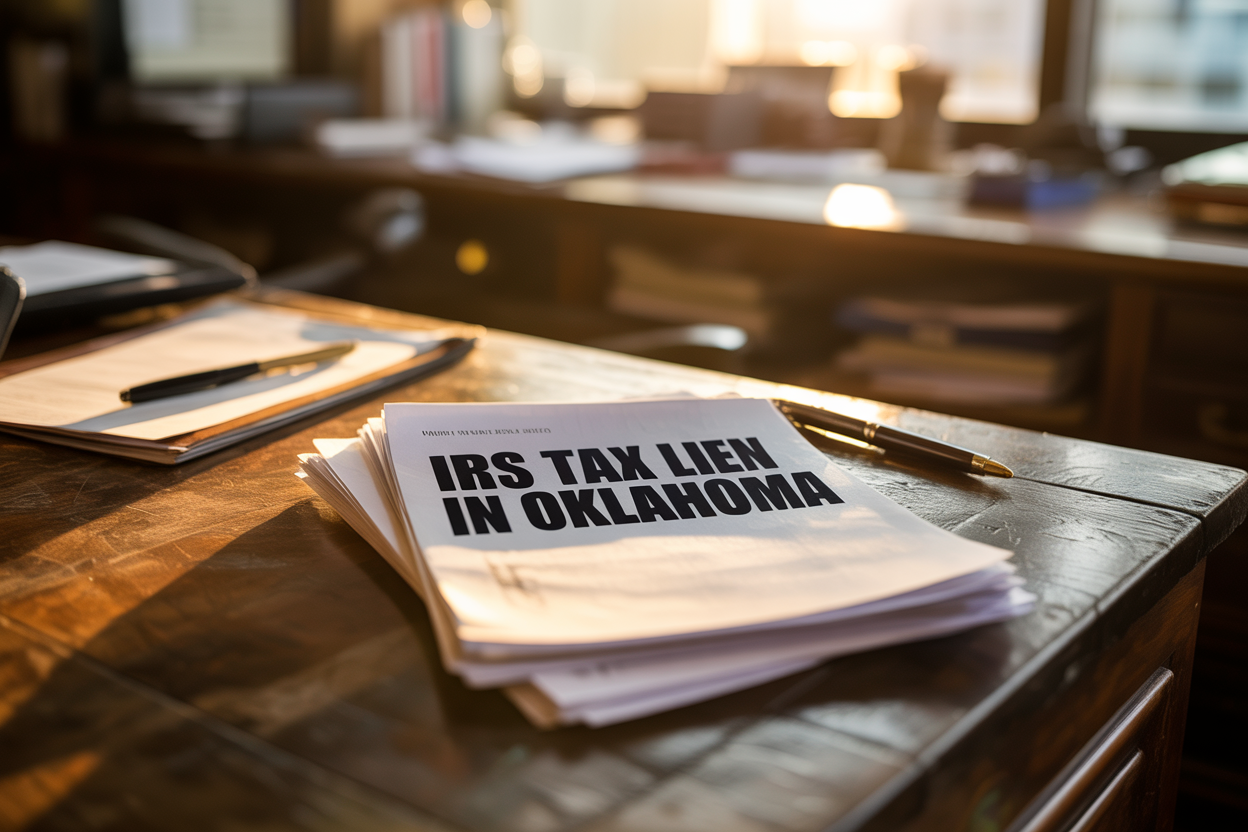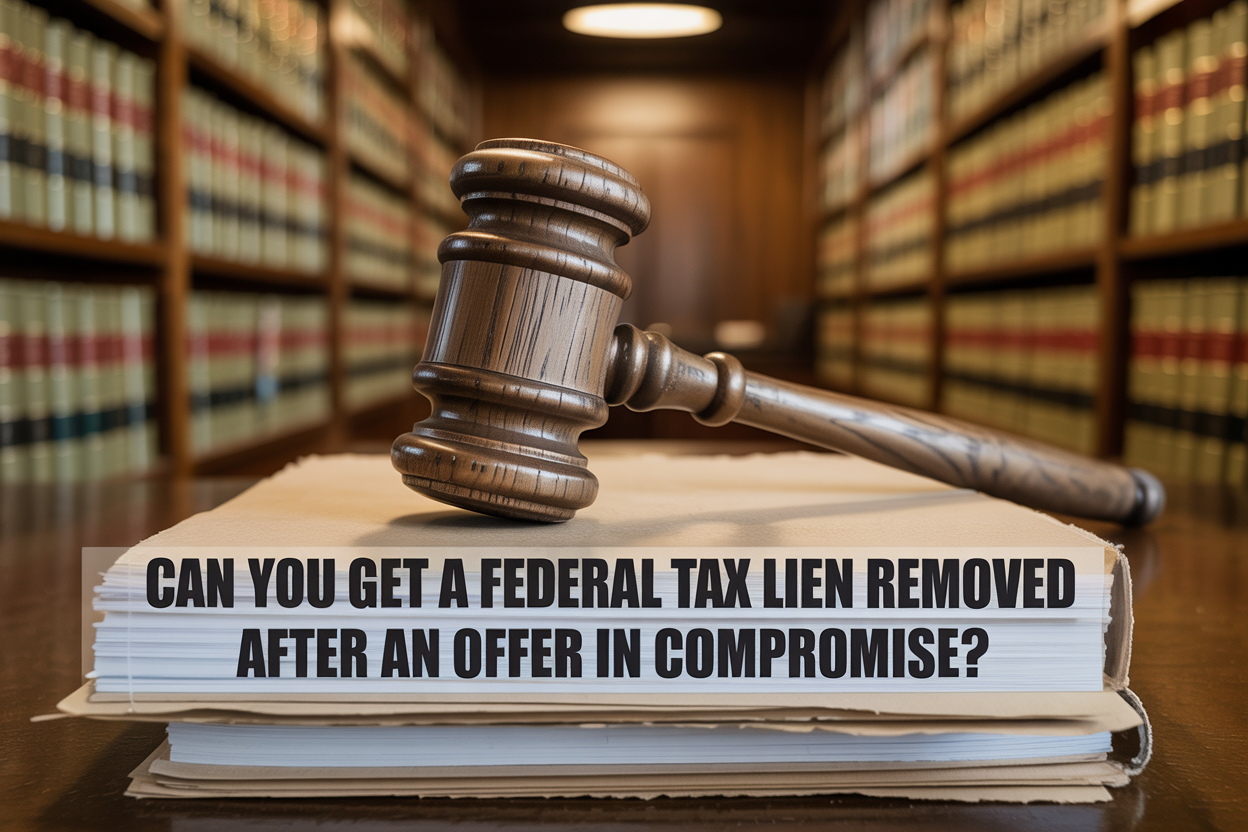IRS Tax Levy vs. Tax Lien – What’s the Difference? (Oklahoma Guide)
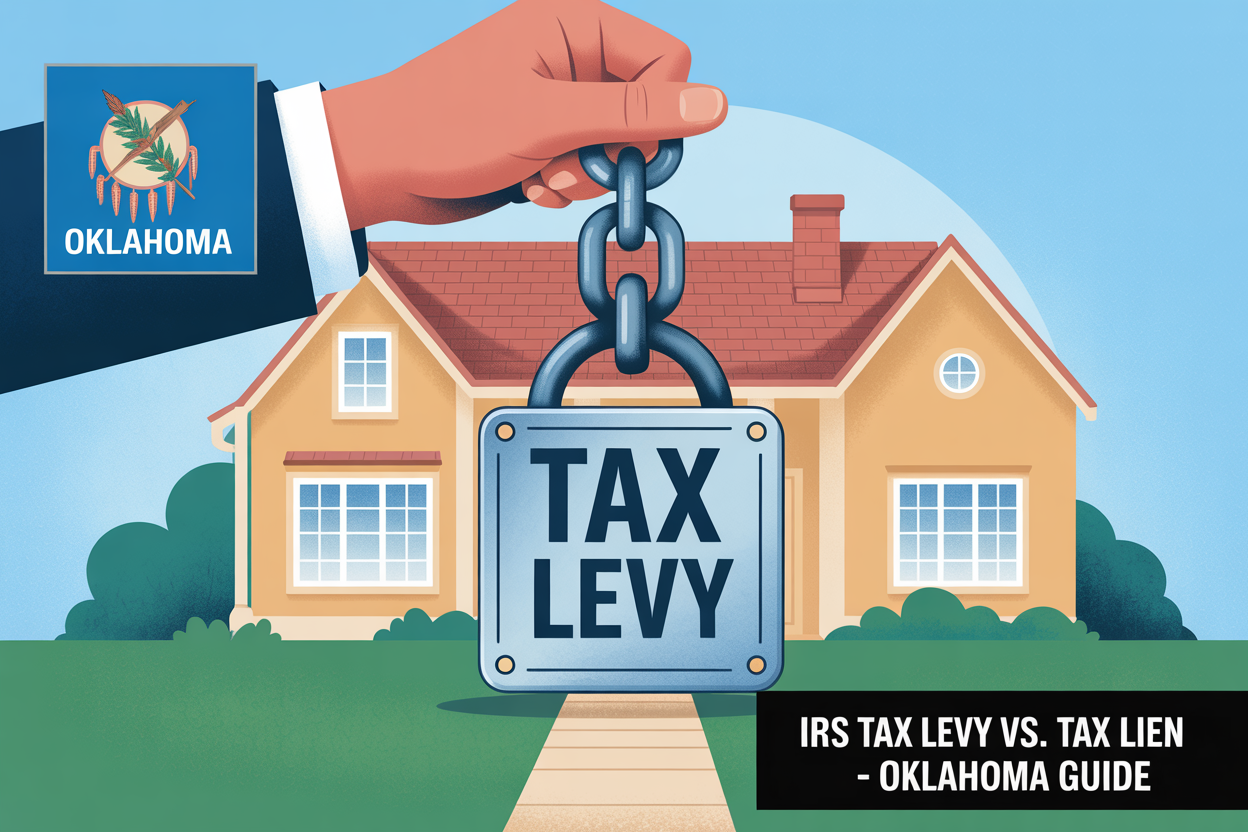
If you owe back taxes to the IRS or the Oklahoma Tax Commission (OTC), you may receive notices about either a tax lien or a tax levy — or both.
These terms are often confused, but they mean very different things.
At Boulanger CPA and Consulting PC, we help Oklahoma clients understand their tax notices and respond fast. Here’s how to know the difference between a lien and a levy — and what to do about it.
What Is a Tax Lien?
A tax lien is a legal claim the IRS or OTC places against your property when you owe unpaid taxes. It doesn’t take your property — it just secures the government’s interest in it.
The lien attaches to:
- Your home or real estate
- Your business assets
- Your vehicles and other personal property
Tax liens are typically filed publicly and can show up on background checks, credit reports (indirectly), and title searches.
Key point: A lien does not mean money has been seized. Yet.
What Is a Tax Levy?
A tax levy is the actual seizure of your assets. This happens when the IRS or OTC uses their collection powers to take your property or funds.
This includes:
- Wage garnishment
- Bank account levy
- Seizure of accounts receivable
- Levying retirement or brokerage accounts
Key point: A levy = money being taken. It is the enforcement mechanism triggered by unresolved debt.
IRS Process: Lien Before Levy
In most IRS cases, a lien is filed before a levy is issued. The sequence usually looks like this:
- CP14: Initial balance notice
- CP504: Intent to levy + lien warning
- LT11 or Letter 1058: Final Notice of Intent to Levy
After those steps, the IRS has legal authority to garnish or levy. Timing matters — and you have rights if you act quickly.
→
Learn how to stop IRS wage garnishment
→
Read how OTC levies work
Oklahoma Tax Commission (OTC) Process
The OTC doesn’t always follow the same steps as the IRS. In many cases, a warrant is filed and enforcement begins almost immediately.
- Bank accounts may be frozen without a prior lien filing
- Levies can be issued shortly after notices go ignored
- License suspensions are also common with OTC cases
Key takeaway: OTC enforcement is often faster and less formal. Don’t wait for a Final Notice to act.
→
What an OTC tax warrant means
→
All tax resolution options explained
How to Get a Tax Lien or Levy Released
You have several options:
- Pay the balance in full (not always required)
- Set up an Installment Agreement
- Qualify for an Offer in Compromise
- Request hardship status (CNC)
- File a lien withdrawal or subordination (in some cases)
Every case is different. We’ll review your notices, transcripts, and financials to build the best solution.
→
Settle IRS debt with an Offer in Compromise
→
Qualify for CNC status
Get Help Before Enforcement Gets Worse
We help Oklahoma residents resolve liens and levies with CPA-led representation — no call centers or scare tactics.
→
Schedule your free consultation
📞
(405) 384-4900
Located in Oklahoma City. Serving clients across the state.
🧠 FAQ – Tax Liens vs. Tax Levies
Is a tax lien the same as a tax levy?
No. A tax lien is a legal claim against your property. A tax levy is the actual seizure of your property or money.
Can the IRS file a lien and levy at the same time?
Yes. The IRS can file a public lien and later initiate levy actions if your debt remains unresolved.
Do tax liens affect my credit score?
Tax liens are no longer reported on consumer credit scores directly, but they may show up on public records and background checks.
Can I remove a lien or stop a levy without paying in full?
Yes. We often negotiate lien releases, subordination, or levy relief through installment agreements, Offers in Compromise, or hardship status.
✍️ About the Author
Marc Boulanger, CPA, is the founder of Boulanger CPA and Consulting PC, a CPA firm based in Oklahoma City, OK.
Marc is the author of Oklahoma Taxpayers' Guide: Taking a Stand Against the IRS and has resolved hundreds of complex federal and state tax cases.
With over a decade of experience in IRS and OTC representation, Marc helps Oklahomans navigate high-stakes tax problems with clear strategy and calm expertise.
He is a Certified Tax Representation Consultant and a member of the American Society of Tax Problem Solvers (ASTPS).
📍 Office: Oklahoma City, OK | 📞 (405) 384-4900 | 🌐 www.oklahomacity.cpa


